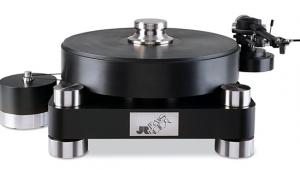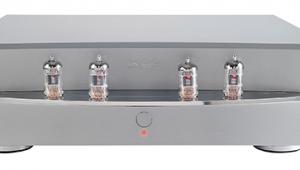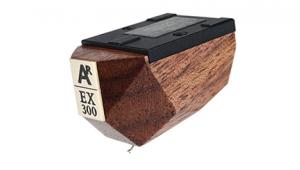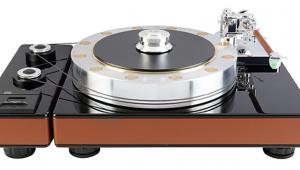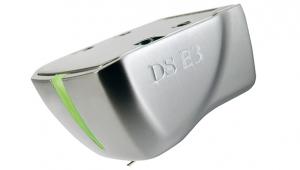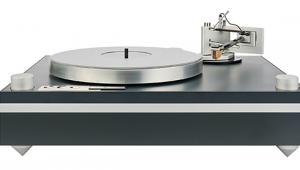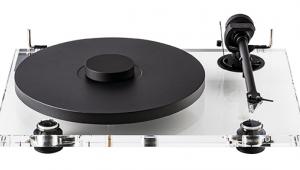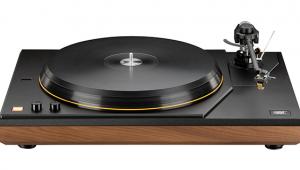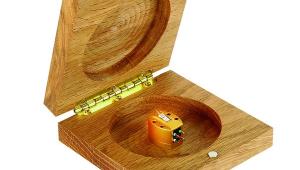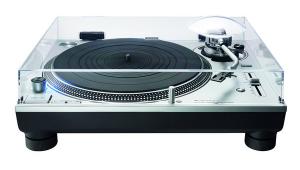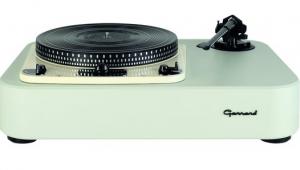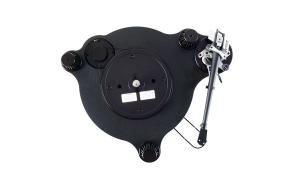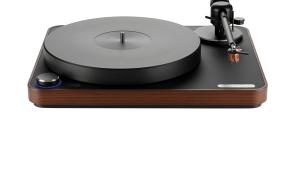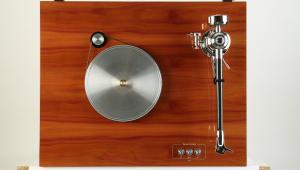Pro-Ject Pick it MC9
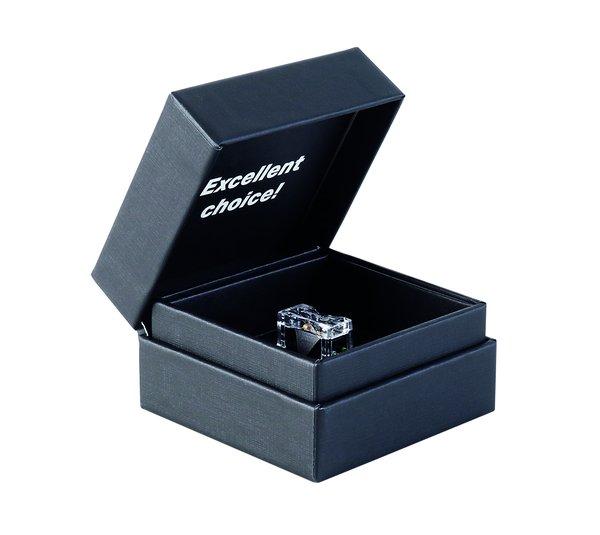
 Designed to take advantage of Pro-Ject's 'balanced' phono preamps, this flag-waving moving-coil marks a departure from the brand's Ortofon-derived moving-magnets
Designed to take advantage of Pro-Ject's 'balanced' phono preamps, this flag-waving moving-coil marks a departure from the brand's Ortofon-derived moving-magnets
As a major turntable manufacturer, Pro-Ject has a longstanding relationship with cartridge builders. This makes sense, as the brand likes to deliver decks ready to play, which requires an MM or MC. Previously, the Austrian company has bundled cartridges from Ortofon with its turntables in Europe, while Sumiko models are favoured in the US, but has lately been launching its own designs, including tweaked Ortofon models such as the Pick it 2M Silver and Pick it S2 C. The Pick it MC9 on test here is something else, though.
Arriving alongside a more affordable MC3 sibling, the MC9 is a low-output moving-coil selling for £1249 and aiming a lot 'higher' than previous Pro-Ject models. The company also claims to have designed and manufactured both its new MCs itself, albeit making use of parts supplied by an unnamed Japanese partner (and you don't have to be a world-class detective to spot clues pointing in the direction of Hana - see PM's Lab Report). Assembly and quality control is completed in Europe.
Next to the advantages of being a manufacturer instead of relying on suppliers, the development of the MC9 ties into a broader business strategy. Last year Pro-Ject, and its CEO Heinz Lichtenegger, started beating the drum for balanced connections for turntables. This in turn requires - or becomes more feasible - with an MC cartridge, as they are more likely, by nature, to offer a balanced output.
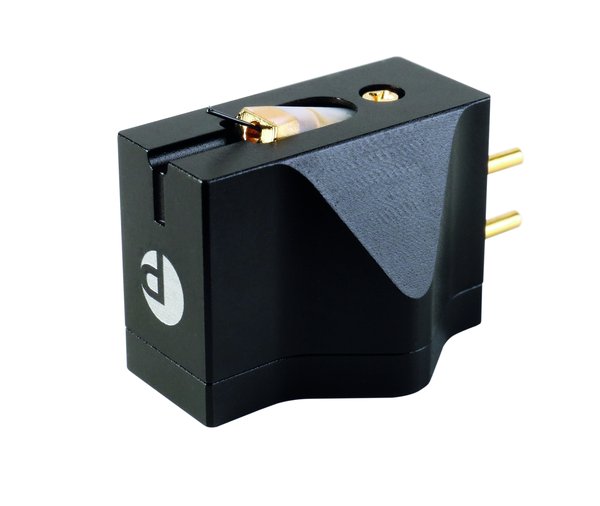
The all-black anodised alloy body
is smart and, with those straight lines, easy
to setup and align. A 100ohm loading is
recommended while higher loads up to 1kohm
reveal a ‘brighter’ response
Black Magic
This explains the release of Pro-Ject's MC9 and the £549 MC3, plus the entry-level Pick it PRO Balanced (£179), a collaboration with Ortofon that's immediately recognisable as inspired by one of the Danish brand's products. That's not the case with the MC9, however, which boasts a streamlined all-aluminium body finished in a simple anodised black. This might be less visually striking than the metallic-blue of the MC3 but makes its positioning clear for anyone coming out of the Ortofon universe, where the colour black signals the top tier in the both the Quintet and 2M lines.
The MC9 has a boron cantilever, subjected to a cryogenic treatment said to realign the crystal structure for 'smoother' signal transmission, and ending in a 'Special Elliptical' stylus. This shape (or, at least, the name), has been used before by Pro-Ject on its moving-magnet Pick it models. The MC9's moving cross coil features a Telar 57 pure iron pole piece with 6N linear crystal copper windings, delivering a claimed 0.35mV output.
Compared to some cartridges, the MC9 is a doddle to setup. There are no visually misleading curves making alignment by eye challenging, nor difficult-to-reach bolt holes. Even without a more sophisticated tool, like Pro-Ject's Align it Pro, it's not hard to install correctly. Nonetheless, checking everything with a test record like Ortofon's Accuracy In Sound or Pro-Ject's own Vinyl Essentials remains necessary. As PM mentions in his Lab Report, the MC9 performed better with a higher tracking force than prescribed by the manufacturer.
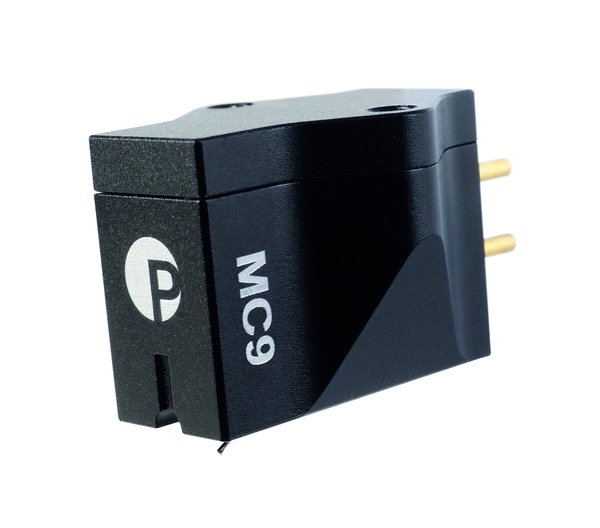
The MC9’s alloy body includes a
substantial top plate with threaded holes set at
the ‘regulation’ 0.5in. Tight headshell mounting
is a given with this cartridge
Balancing Act
Dialling in 2g on the digital scale delivered optimal results on my Pro-Ject X2 B deck , which is fitted with a 9in carbon/aluminium sandwich tonearm. Although Pro-Ject states the MC9 is designed for low-compliance tonearms, it is better suited to those with a higher mass. The tonearm of the X2 B, weighing 13.5g, is close to the limit in that sense, making resonance possible at 12Hz. It depends on the system - and particularly the loudspeakers, and whether they are reflex-loaded - if that is an issue.
Lastly, there's a small indentation on the front of the cartridge, making it easy to drop - sorry, carefully lower - the needle into the space between tracks. Obviously, this is not a cart for a DJ deck, but even audiophiles sometimes want to skip an annoying first track...
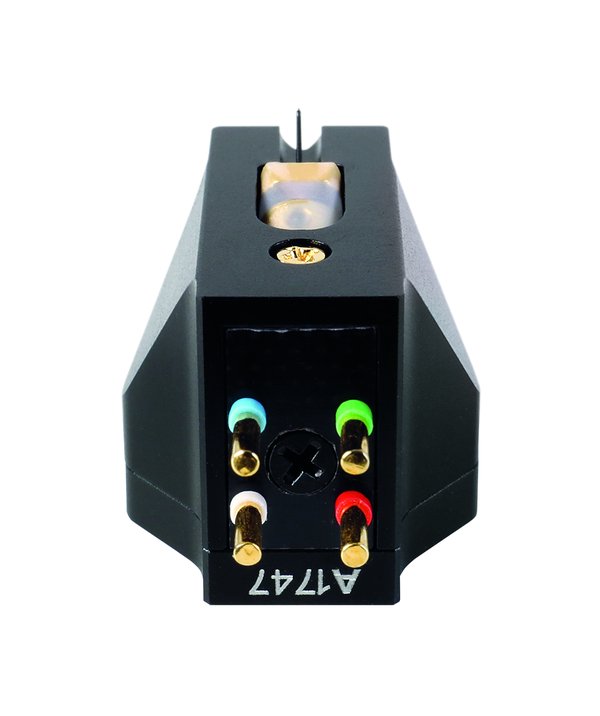
The alloy body may be quite
compact (no bad thing for resonance
control) but the gold-plated pins are still
usefully spaced and clearly colour-coded
Coil Refinery
Fitting the MC9 to the Pro-Ject X2 B makes for a big leap forward on the upgrade path, considering the turntable costs about as much (£1399) as this cartridge. Pro-Ject's new pick-up is arguably intended for higher-end vinyl players, but the X2 B is a solid performer that can do better than the supplied Ortofon Quintet Red. In fact, I've already replaced that cartridge with a Quintet Bronze, enjoying its more refined presentation - and the MC9 proved able to repeat the trick. The signal path was completely balanced, passing from the X2 B turntable to Pro-Ject's Phono Box S3 B [also HFN Sep '22], and over dual XLR cables to a Primare pre/power system. Also present: a Ferrum Hypsos to power the turntable, and a Cork & Rubber it mat.
Pro-Ject makes claims about the MC9 offering a flat frequency response but hedges its bets by also including the word 'audiophile' just before that statement. Smart, as both PM's Lab Report and my own listening paints a slightly different picture. The MC9 has a brighter, refined profile, extracting a lot of resolution and dynamic richness from grander recordings. It's an MC that handles classical set pieces delightfully, but sometimes feels a little polite when confronted with more commercial recordings, such as Taylor Swifts Midnights [Republic Records 2445790081] or Daft Punk's Random Access Memories [Columbia/Sony Music 88883716861].
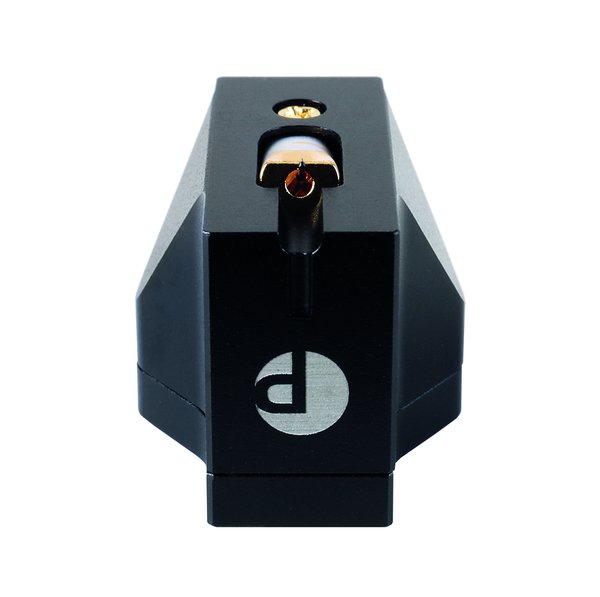
As the boron cantilever
emerges from the MC9’s front yoke,
the ‘pure iron’ cross coil and 6N copper
windings are just visible behind
Eyes Wide Shut
'Dream 3', the first track on the condensed 2015 version of Max Richter's epic Sleep [From Sleep; Deutsche Grammophon 00289 479 5296 GH], features a slowly played cello, which here made a striking entrance against a large scale background populated with sparse piano notes. This piece is a meditative experience, intended to literally get you to nod off. But before that happened, I managed to note there was bountiful midrange texture on offer and a more articulate treble than that heard through the Ortofon Quintet Bronze. And Pro-Ject's MC9 was particularly good at revealing micro-detail in the recording that enabled me to appreciate the ambience of a large church, both during 'Dream 3' and the following 'Path 5'.
Considering the nature of the full version of Sleep, the sacral feel to this ode to taking a nap is no accident. In its unabridged form Richter's composition lasts eight hours and has been performed multiples times as a sleep-over, with beds for the audience, in places like the Barbican and the Antwerp Cathedral. That's undoubtedly quite an experience, but listening to its shorter vinyl edition through the MC9 turned out to be satisfyingly relaxing even as the cartridge's penchant for highlighting small details kept me engaged.
The MC9 enjoyed a home advantage when I played the Wiener Philharmoniker/Herbert Von Karajan recording of works by Richard Strauss [Decca 028948409617], as this 2019 re-release was supported by Pro-Ject. But 'Don Juan, Op.20' is also the kind of composition to which this pick-up feels particularly suited. A tone poem recorded in 1960, it contains a few crescendos, starting off with subtle strings that the MC9 displayed with a slight edge. And as the dynamics grew, its fast-paced performance ensured I was pulled into the recording.
Blast From The Past
Similarly, both the harp and flute on 'Tod und Verklärung, Op.24' were impressively organic-sounding, communicating the sober tone of the introductory part, while the grand horns and percussion arrived with energetic blasts as they symbolised the struggle of Strauss's dying artist. It was engrossing stuff, and though the timpani felt at times a bit recessed, this was fully compensated by the sheer quality of the violins and weight of the horns.
With Radiohead's A Moon Shaped Pool [XL Recordings XLLP790] the Pro-Ject MC9 cartridge did a great job bringing the stabbing strings at the start of 'Burn The Witch' into focus, a slightly manic musical element that was more present than I'm used to. Might the cartridge's treble lift, as noted in PM's Lab Report, be responsible? Probably, which also explains why some other instruments sounded more to the fore, like the piano now taking the lead more than ever in 'Daydreaming', or the reversed sample that repeats at the end. I'd never really noticed this during previous listening sessions, including how it fades off into the distance.
Listen Again
As said, Pro-Ject describes its pick-up as audiophile-tuned. That's not a lie if you define audiophile as 'more detail and spaciousness'. Looked at from another angle, the MC9 also encourages you to listen again to records and experience them in a way that feels more revealing - especially when coming from a darker, more mainstream cart.
Hi-Fi News Verdict
Strictly, the MC9 is not an easily affordable upgrade for all Pro-Ject decks, but neither is it simply a rebranded Ortofon - two things we might have expected. Instead, it's a very capable MC that, partnered with a top-flight tonearm and deck, will deliver an audiophile listening experience. Extracting detail and dynamics, this precision pick-up is a worthy choice for consuming classical works and all refined recordings.
Sound Quality: 88%

